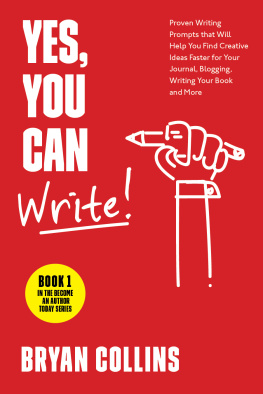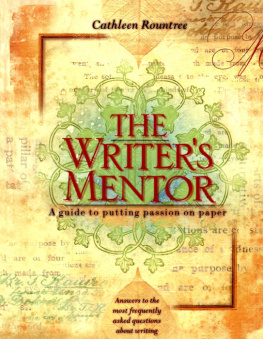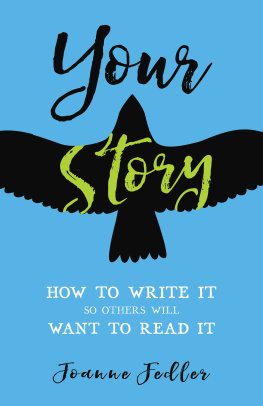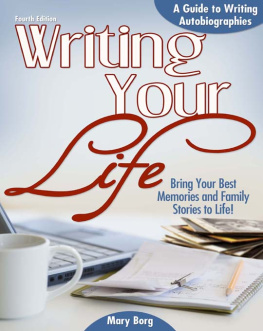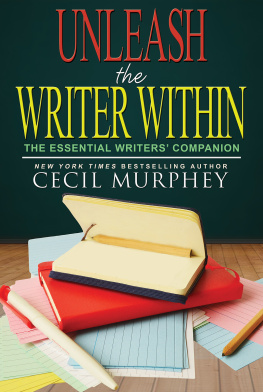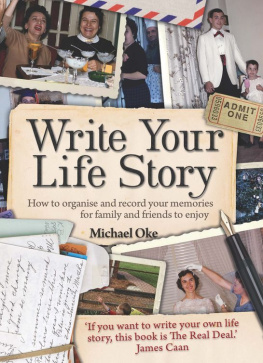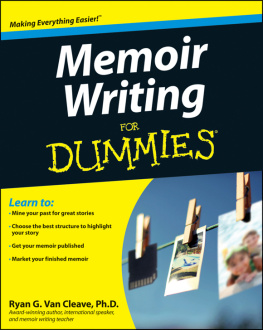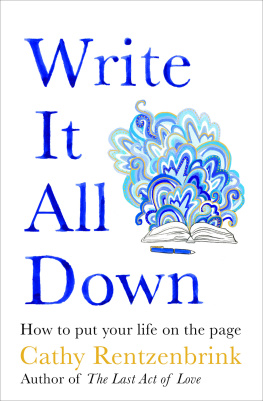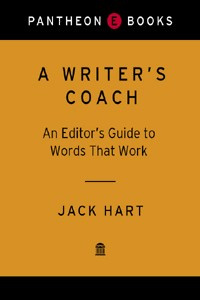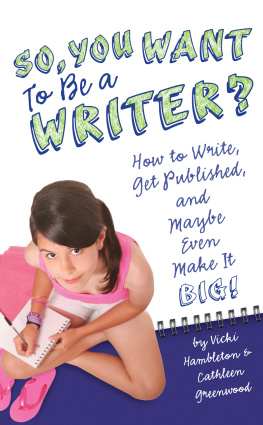How To Write Your Own Life Story
How To Write Your Own Life Story
The Classic Guide for the Nonprofessional Writer
FOURTH EDITION
Lois Daniel

Library of Congress Cataloging-in-Publication Data
Daniel, Lois.
How to write your own life story: the classic guide for the non-professional writer / Lois Daniel. 4th ed., rev. and expanded.
p. cm.
Includes bibliographical references.
ISBN 1-55652-318-1 (paper)
1. Autobiography I. Title.
CT25.D36 1997
808.06692dc21
96-52438
CIP
Breakfast on the Beach is reprinted here with permission from
Unity School of Christianity, Unity Village, MO 64065.
The Willa Cather quote (page 155, in ) is taken from Phyllis C. Robinson,
Willa, The Life of Willa Cather (New York: Doubleday & Co., 1983), p. 20.
1980, 1985, 1991, 1997 Lois Daniel
All rights reserved
Fourth edition
Published by Chicago Review Press, Incorporated
814 North Franklin Street
Chicago, Illinois 60610
Printed in the United States of America
ISBN-13: 978-1-55652-318-2
ISBN-10: 1-55652-318-1
10 9
To Carol Dechant, whose encouragement has been so much a part of this book that she almost deserves a byline.
Contents
Your family will love you for giving them a priceless giftthe story of your life
ONE
Setting Up Your Memory Bank
Foolproof ways to jog your memory about things that happened long ago
TWO
Ground Rules
Ten special tips to make writing the story of your life easy and effective
THREE
Working On Your Assignments
How to actually get it all down on paper
FOUR
Birth
Discover the world into which you were born and share it with your readers
FIVE
Toys
Special tips for digging up early memories
SIX
Some Dos and Donts
How to stay inspired and keep from getting bogged down
SEVEN
Parents and Grandparents
Finding out about the lives of your parents and grandparents
EIGHT
It Wasnt Always Easy for Our Ancestors to Write Their Stories
In fact, it was often hard!
NINE
The Accomplishment of Which You Are the Most Proud
Time for a little soul searching that may produce some happy surprises
TEN
Create Your Own Assignments
Your experiences, opportunities, problems, or solutions to problems that are truly unique
ELEVEN
Where Were You on Important Days in History
Your stories about where you were on important days in history are different from those of anyone else in the world
TWELVE
Religion
Has religion changed your life? Inspirational stories, funny stories, and more
THIRTEEN
Relatives
Aunts, uncles, nieces, nephews, cousins, brothers, sistersmaking them come alive for your readers
FOURTEEN
Courtship
As she sees it; as he sees it
FIFTEEN
Turning Points
Changes in yourself and in your world that affected you and/or your family
SIXTEEN
Children and the Things They Say
Save the bright, funny, touching things kids say
SEVENTEEN
Inventions
Sharing with your readers your excitement about inventions you remember seeing or using for the first time
EIGHTEEN
Holidays
Memories, both happy and sad
NINETEEN
Politics
Party politics, the civil rights movement, the womens movement, and more
TWENTY
Animals
Theyre everywherein your home, at the zoo, on the farm, in the pet store, straying in the streets
TWENTY-ONE
Family Traditions
Your familys special joys
TWENTY-TWO
Immigrants
Americans all!
TWENTY-THREE
Your Stories Dont Actually Have To Be Stories
In autobiographical writing almost any memory qualifies as a story
TWENTY-FOUR
Brief Encounters
Even if they lasted only a moment they may enrich your memories forever
TWENTY-FIVE
More Living, More Stories
More ideas for stories about your life, more memory helps
TWENTY-SIX
Where Do You Live? Where Did You Live?
Places you have lived are part of your heritage
TWENTY-SEVEN
They Read the Book and Got Busy!
How two men used this book, each in his own way
TWENTY-EIGHT
Research
Fun and easy ways to find the facts you need
TWENTY-NINE
Revising and Pulling It All Together
Weaving your stories into a book that will thrill your children, grandchildren, and great grandchildren
THIRTY
Publishing Your Stories
This book is primarily about writing for your family, but here are some tips if you want to break into print
THIRTY-ONE
Your Special Privilege
How to be your familys special link to history
Introduction
The idea for this book came out of a failure. Several years ago I was teaching a creative writing class at Longview College in Lees Summit, Missouri. In many ways the class was a complete success. The students were enthusiastic, seldom missed a session, and two even sold articles to magazines before the semester ended. However, I felt that I completely failed one studenta seventy-five-year-old woman.
When I asked each student to state his or her reason for joining the class, this ladys reason was that her children had been begging her to write the story of her life. I dont know how to do it, she said, and I thought you might be able to help me.
Frankly, I had no idea how to help her. The course was designed to help students who wished to become professional writers turn their article and story ideas into salable manuscripts. I hadnt the faintest idea how to help an inexperienced writer write the story of her life. My suggestions, which were being received enthusiastically by the other students, were of no value whatsoever to this woman, and she finally dropped out of the class. I counted her leaving as a definite failure on my part, but at that time I didnt know what to do about it.
I felt especially bad since I knew how much my family and I valued a story that my mother (with much urging from us) had written about an incident in her life. It was the story of a trip she made in a covered wagon from Minnesota to Missouri when she was five years old. We love the story as a family history and also as an interesting, detailed account of an actual covered wagon trip. However, the story was of special value to me for a very personal reason.
My parents were well along in years when I was born. This made me a second generation in my own family and my mother was distant from me in both years and personality. I viewed her as a very old, very strong, very domineering woman. When I read her story, which is filled with funny and sometimes heartbreaking incidents from her childhood, she, for the first time, seemed to me to be a vulnerable human being. I was grateful to have this new view of her even though it came late in our relationship.
As I thought about how I valued my mothers story I wanted very much to develop a course to help adult students write about their lives. I wanted to help them produce material that would be precious to their familieson whatever level was appropriate for each family. Perhaps in addition to serving as an historic link for past, present, and future generations, some of the stories might even help resolve old conflicts and promote understanding among family members.
Something else that gave me a sense of urgency about helping adults write their memoirs is the fact that although my father had been dead for nearly thirty years I had recently had a great longing to know something about him as a young man. I know that soon after he graduated from high school he roamed over the western states for two or three years before marrying my mother and settling down to become the most dependable and affectionate of family men.
Next page

